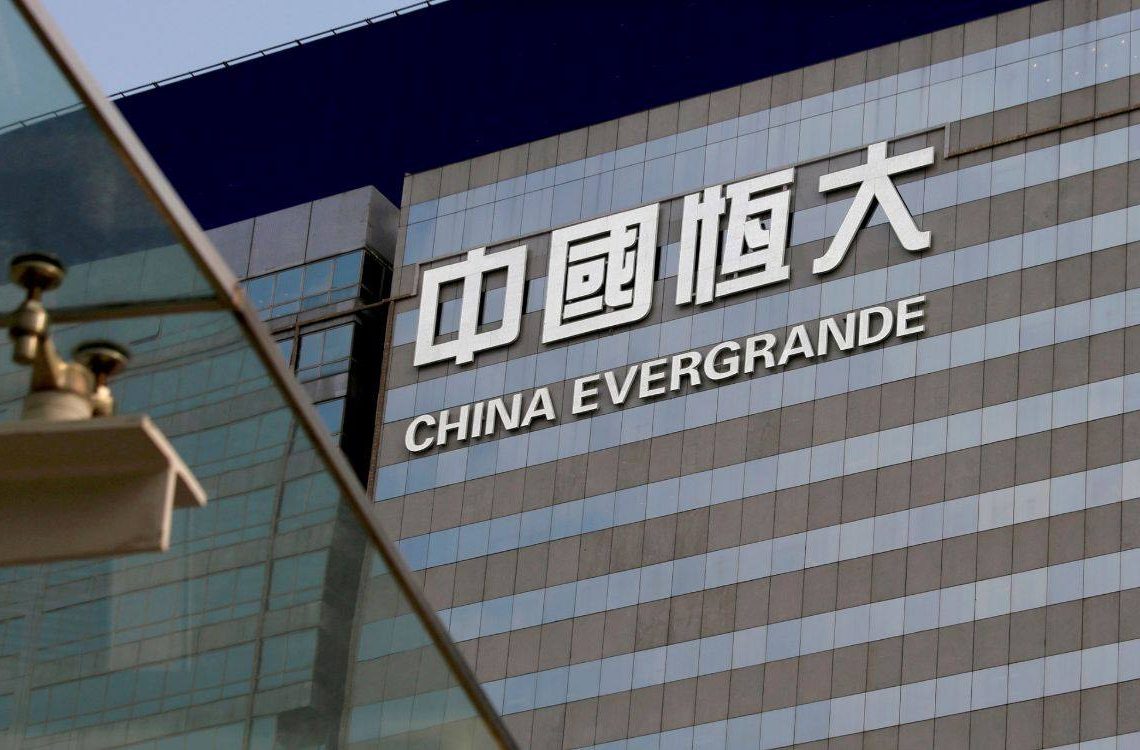Evergrande, one of the biggest Chinese commercial real estate developers, alleged to own more than 1,300 projects in 300 cities across China, is collapsing due to owing more than USD 300 billion worth in debt and is impacting financial and crypto markets.
Evergrande collapse: risks for the markets
The real estate (and related) sector accounts for about 20 percent of China’s GDP according to estimates from some economists. As the world’s second largest economy, any collapses in such major sectors could have ripple effects into the global markets. Last Monday, the S&P 500 saw big swings when Evergrande shares plummeted 19% to its lowest level in more than ten years.
The week of bad news from and for Evergrande continued as it failed to pay a coupon payment of USD 83.5 million on one of its dollar-denominated bonds on Thursday. The company’s second largest shareholder, Chinese Estate Holdings, then announced it had dumped 13 percent of its shareholding at loss and could offload its entire stake in the months ahead.
Conversations around how the chaos in the Chinese real-estate market could spill across the world economy flooded markets and media. Fears of the Chinese real estate giant triggering a “Lehman moment”, whereby the 2008 subprime mortgage crash had a domino effect on the world economy, ran rampant last week. The prevailing sentiment was that debt ruled the world and Evergrande has proven it once again in 2021.
In a bid to alleviate market fears, China’s central bank (PBOC) injected more than USD 18.5 billion (120 billion yuan) into the banking system.

Cryptocurrencies Now a Macro-Integrated Asset Class
On the crypto front, prices also plunged last Monday in a widespread market sell-off, sparked by concerns of Evergrande’s catastrophic debt default, evidence of crypto becoming a macro-integrated asset class with higher correlations to macro events.
Coinmarketcap recorded losses of more than USD 250 billion across crypto markets and the value of global cryptocurrencies plunged to less than USD 1.9 trillion. Analytics platform Bybt recorded a total of USD 1.2 billion worth of crypto futures liquidated.
As prices crashed, El Salvador President Nayib Bukele tweeted that the country had “bought the dip” – 150 bitcoins (approximate USD 6.5 million), bringing the total it held to 700 coins.
Evergrande’s Wednesday announcement that it had resolved a coupon payment, a Shenzhen-traded 5.8 percent bond that matures in 2025, caused a short-lived rebound for both crypto and global markets (Dow Jones, S&P 500 and Nasdaq). The following day, the Chinese real estate giant defaulted on its USD 83.5 million dollar-denominated bond payment, plunging the markets back into uncertainty.
In tangent, compliance measures taken against the world’s largest crypto exchange Binance has seen the platform recently restricting Singapore users from using its services. This follows similar global regulatory pressure from Hong Kong, Malaysia, Thailand, Italy, Japan, UK, US and Germany in recent months,
The People’s Bank of China also stated last Friday that they intended to crack down on crypto. On their website, the PBOC claims that all crypto activity carried out in China is illegal. This includes trading digital assets, altcoins, token issuance and derivatives. Furthermore, the PBOC also states that overseas activity directly involving China is also illegal. BTC price shed almost 5 percent while ETH fell over 8 percent following the announcement.
Crypto Crackdown – Market Plunge – Market Recovery to New Highs – Repeat?
While it is clear the crypto markets are moving into a much more vulnerable market environment, despite all the daunting headlines, the community seems to be taking it with a grain of salt.
Being that this isn’t the first time China has claimed that crypto is illegal, investors are not unduly worried as announcements like this follow a cycle that has played out since 2017: China cracks down on crypto – markets plunge – markets recover and reach new highs – repeat.
While it could be said that the Chinese government motives behind crackdowns like this generally revolve around the issuance of the digital Yuan, China’s CBDC, some quarters have linked both the crypto crackdown and the fintech clampdown to the Evergrande crisis.
According to a China-based market analyst, Weston Nakamura, the targeting of big tech and the fintech elite is an attempt by the government to win populist support before a “bail out” of Evergrande using taxpayer money.
“Evergrande will get bailed out and the more it gets rescued, the worse they will have to come down (on other sectors) just for the optics,”
said Nakamura in a Real Vision podcast, believing that China will eventually intervene to minimize Evergrande’s debt impact on the economy.
A deal where Evergrande gets restructured into three separate entities is allegedly being finalized by the Chinese Communist Party, with the property developer transforming into a state-owned enterprise. The main goal is to stem any widespread economic flow-on effects that an insolvency the scale of Evergrande would cause on the Chinese economy.
The past months have seen China clamp down on big tech platforms that have wiped significant value from stocks such as Alibaba, Didi and Tencent. The recent declaration that trading Bitcoin and other cryptocurrencies is a criminal activity follows a pattern of the CCP targeting huge tech platforms, this time in the cryptocurrency trading space. As of this writing, large Chinese exchanges such as Huobi and Bitmart amongst others have begun restricting Chinese users from using their platforms.
- By Cecilia Wong, Managing Partner (Singapore) and Amirsan Roberto, Co-founder at Sinofy Group. Sinofy is an end-to-end tech consulting management firm headquartered in Shanghai.
The post Evergrande impacts markets amidst China’s crypto ban appeared first on The Cryptonomist.





















